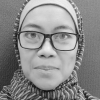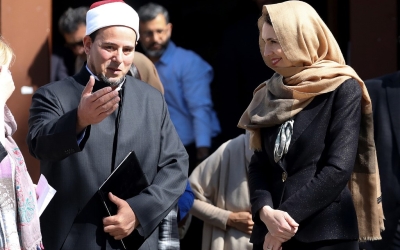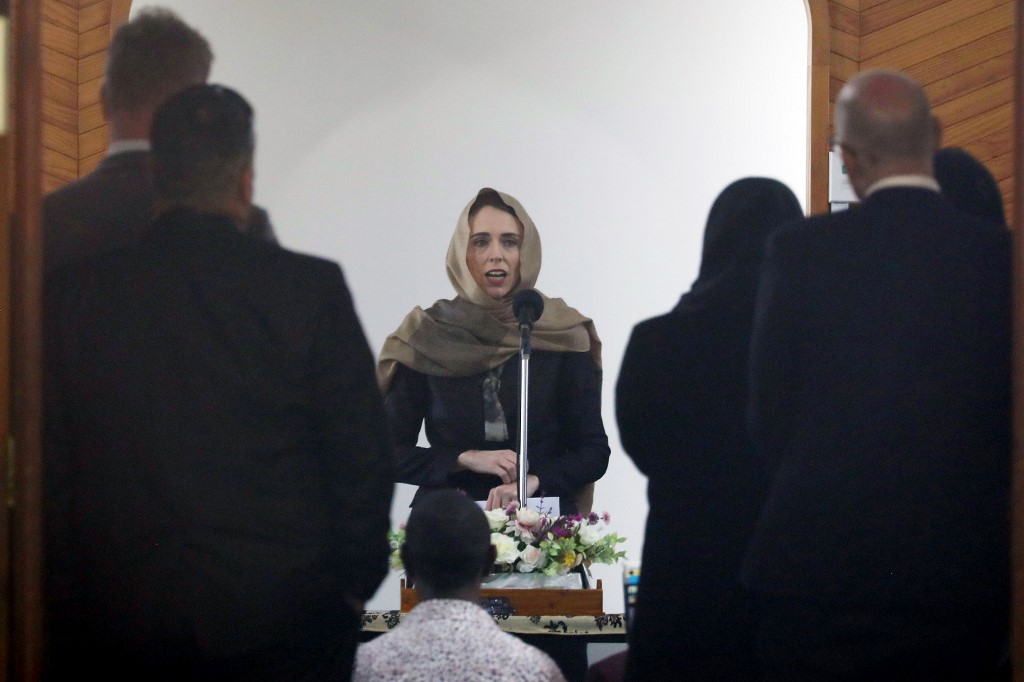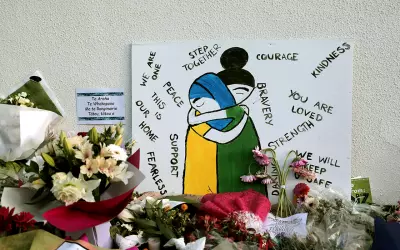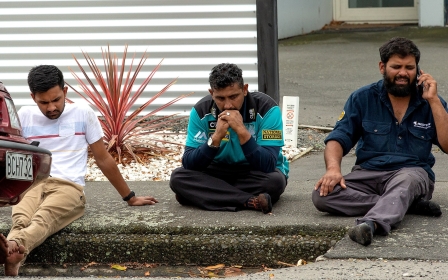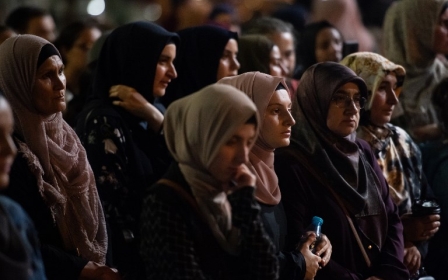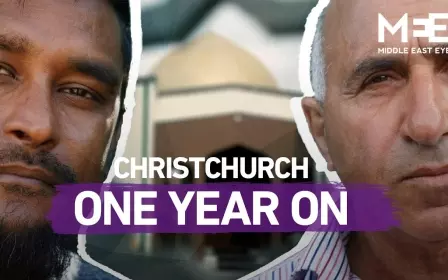Christchurch attack inquiry: Survivors need systemic change
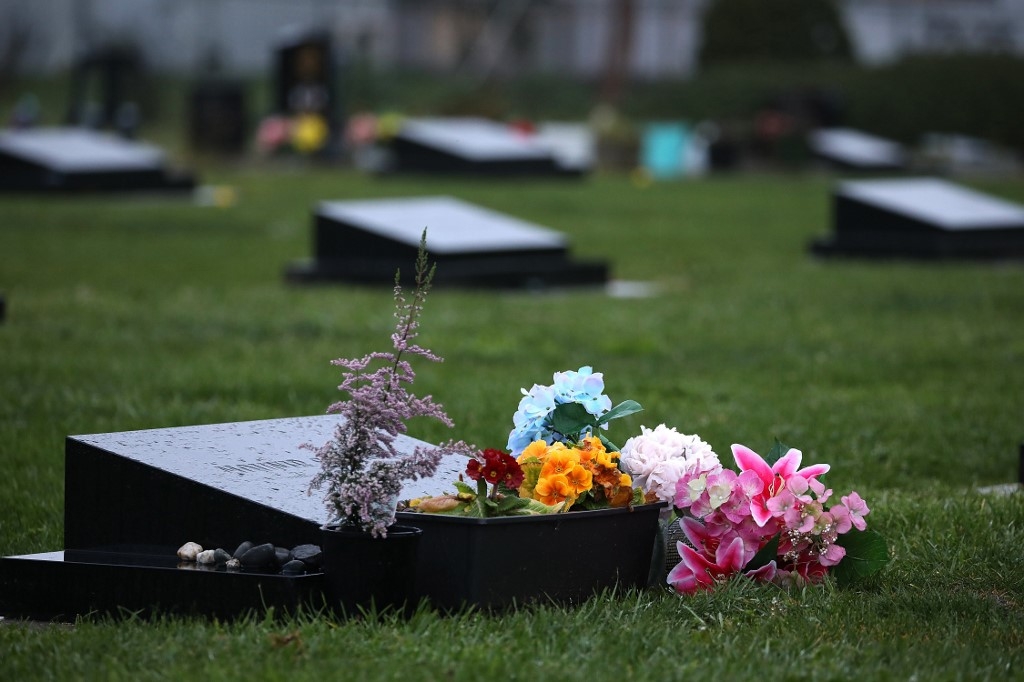
The Royal Commission of Inquiry recently released its report into the 2019 terrorist attacks on two Christchurch mosques. My husband, Zekeriya Tuyan, was among the 51 victims.
The report’s commissioners interviewed hundreds of people, including ministers; met with representatives of intelligence and security services; communicated with all of New Zealand’s 217 public sector agencies; and reviewed 73,500 pages of evidence and submissions. The end product was a $17m, 792-page report containing 44 recommendations. I am grateful to the commissioners and their team for this monumental work.
There is certainly a moral obligation for the government, as the custodians of our national security, to hold agencies to account for broken systems
Given that the government had set limits to the terms of reference, my initial intention was to seek light on a number of key questions. Were the deaths, injuries and heartaches avoidable, and if so, who is to blame and where do the failures lie? Why did the terrorist choose to carry out his heinous manifesto in New Zealand? How was he able to escape surveillance, given the number and range of assault weaponry he acquired within a short time? Was he missed because he was just another white bloke?
While I generally welcome the report and its recommendations, my reaction is tinged with disappointment. After 21 months of waiting patiently for the big reveal, what I ended up reading was mainly an echo of what many in the community have been saying for decades: that aspects of our public services are deficient - even damaging to us.
I am not an expert on national security, and much will continue to be said and written on the topic. I don’t find relief when expert opinions align with mine. Years of data from international counterterrorism operations have exposed a disproportionate focus on, or surveillance of, Muslims, including monitoring their offline and online activities more than other groups.
New MEE newsletter: Jerusalem Dispatch
Sign up to get the latest insights and analysis on Israel-Palestine, alongside Turkey Unpacked and other MEE newsletters
Is New Zealand’s Security Intelligence Service so unique that it has avoided such pitfalls? Experts often note how critical it is to address the underlying conditions that engender violent extremism. Yet, the report concludes that nothing could have prevented this tragedy.
At the time of the attacks, Prime Minister Jacinda Ardern stated: “This individual should have been someone that the authorities were aware of and were proactively already focused on.” I am resigned to believe, however, that the system was not designed for, nor is it applied to, an “individual” like him.
Charged for complicity
The Chapel Hill killings, the mass shooting in Quebec, the massacre at the Tree of Life synagogue in Pittsburgh, the Charleston church shooting, and the mass murder of 77 people in Norway have apparently not taught us much about the rising threat of white supremacists, nor refocused our perception of potential threats in New Zealand. The loss of 51 of our own beloved must have.
I applaud the acknowledgement that New Zealand needs laws and policies that are appropriate for the times, because the threats that the country faces will continue to change as the nation changes. So, while the official report notes that the terrorist acted “alone”, I would like to call for legislation to enable the prosecution of those who are complicit: those who support a terrorist’s plans, and his actions, such as by watching a livestream. They should be charged, similar to how joint enterprise offences work in the UK.
I acknowledge that the inquiry was not allowed to “determine civil, criminal or disciplinary liability”. I acknowledge that the prime minister and the heads of the country’s intelligence and police services have apologised. I understand that the government cannot be legally held to account.
But they can be pressured. There is certainly a moral obligation on the government, as the custodians of our national security, to hold agencies to account for broken systems, significant gaps in operating procedures, and unacceptable bias and prejudice that compromise our national security and social cohesion.
What is urgently needed is not just change or “restorative justice”, but a transformation. This is what the affected whanau, survivors, witnesses and many community members who have experienced varying facets of these agencies’ failings, deserve. The scars of distrust cut much deeper than 15 March 2019. For the scars to heal, we must restore the name of Islam that was dishonoured, pay tribute to those who were lost, and dignify those still recovering.
Collective consciousness
But all is not lost. I am very much heartened by the parts of the report on social cohesion and implementation. This past August, while undergoing mandatory isolation on my way to attend the killer’s sentencing, I wrote an opinion piece for the local paper, calling for inclusion and a “collective consciousness of others”.
The sentencing has paved the way for a new phase in the community’s recovery process. We now have to position our response work in a way that harnesses the national solidarity we witnessed on 15 March and afterwards.
We need to enable our community to heal alongside, and hand-in-hand with, the wider public, organisations and government agencies. There are many great initiatives already underway in the community that need long-term support and coordination to sustain.
While there is an opportunity for the community to have some agency in managing the report’s recommendations and related outcomes, it is struggling for direction and capacity. We need capable people who have a good understanding of systems, Islam, culture and the contemporary western mentality. The need for competency and capacity-building goes both ways.
The New Zealand government has agreed “in principle” to implement all of the recommendations. We have had royal commissions before; it is one thing to agree, but another to implement.
It is in the public interest that we ensure they keep their promise. They have political capital tied to this, so it behooves them to act efficaciously. We have an empathetic and responsible government, so I trust that they will do what is right.
The views expressed in this article belong to the author and do not necessarily reflect the editorial policy of Middle East Eye.
Middle East Eye delivers independent and unrivalled coverage and analysis of the Middle East, North Africa and beyond. To learn more about republishing this content and the associated fees, please fill out this form. More about MEE can be found here.


